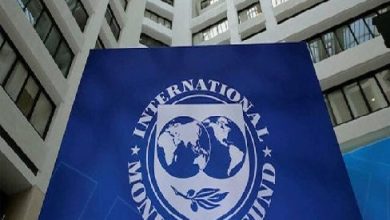NCC Unveils N10 Million Licensing Framework for A2P Messaging to Curb Fraud and Plug Revenue Leaks
NCC introduces ₦10 million license to regulate A2P messaging services across Nigeria’s telecom sector.
The five-year permit targets fraud, spam, and revenue loss in automated bulk SMS systems.
The Nigerian Communications Commission (NCC) has unveiled a new regulatory framework aimed at streamlining Application-to-Person (A2P) messaging services in the country. The framework introduces a mandatory five-year license priced at ₦10 million for all entities that deliver automated bulk messages, such as bank alerts, promotional SMS, and system-generated notifications, to Nigerian consumers.
The move marks a decisive step toward regulating Nigeria’s rapidly growing A2P messaging industry, addressing long-standing issues related to fraud, spam, and government revenue loss stemming from untracked international SMS traffic.
The framework affects telecom operators, banks, fintech companies, airlines, hospitals, political campaigners, and any business or aggregator using automated platforms to communicate with customers. A2P messaging has become a critical tool in sectors where timely alerts, such as account balances, security codes, or appointment reminders, are essential.
According to the NCC, any business involved in this space must now be licensed to operate legally within Nigeria’s telecom ecosystem. Companies that fail to comply risk enforcement penalties, including service shutdowns.
The NCC highlighted several issues driving the framework’s introduction:
- Rampant abuse of SMS channels for spam and fraudulent activities
- Use of grey routes, unauthorized or unofficial delivery channels for international SMS, which evade regulatory scrutiny
- Revenue leakages due to untracked international traffic
- Erosion of consumer trust caused by poor message authentication and delivery standards
“It has been observed that the excessive use of the Short Message Service has led to fraud, spam and illegal activities,” the Commission said. “The problem is likely to worsen as mobile connectivity and digital services continue to grow exponentially.”
Aside from the ₦10 million licensing fee, the framework outlines stringent obligations for all A2P service providers:
- Mandatory centralized routing for all international A2P SMS traffic through NCC-approved channels
- Strict ban on grey routes
- Compliance with data protection and encryption standards
- Regular reporting requirements, including traffic volume and pricing transparency
- Interconnection mandates disallowing licensees from blocking or discriminating against other operators
Only companies with a proven track record of ethical and secure operations will be considered eligible for licensing, according to the NCC.
The centralized routing model will allow the Commission to monitor international SMS traffic more effectively, ensuring fair compensation to local network operators and reducing exploitative practices by offshore platforms.
For large corporations and financial institutions, the framework brings welcome regulatory clarity and potential quality improvements. However, for smaller firms and local aggregators, the ₦10 million entry cost could pose a financial hurdle. Many may be forced to partner with licensed entities to remain in compliance.
Foreign-based messaging platforms will also be required to reroute international SMS traffic through Nigerian networks, thereby preventing them from bypassing local infrastructure and associated charges.
According to analysts, the measure could help plug revenue gaps, strengthen cybersecurity, and support Nigeria’s digital sovereignty efforts by limiting unregulated international data exchange.
The NCC is currently seeking feedback from stakeholders, including mobile network operators, banks, fintechs, and the general public, before finalizing the framework. Minor revisions are expected before full implementation.
Once finalized, the regulation is expected to improve trust, consumer protection, and transparency in Nigeria’s digital communication sector.



